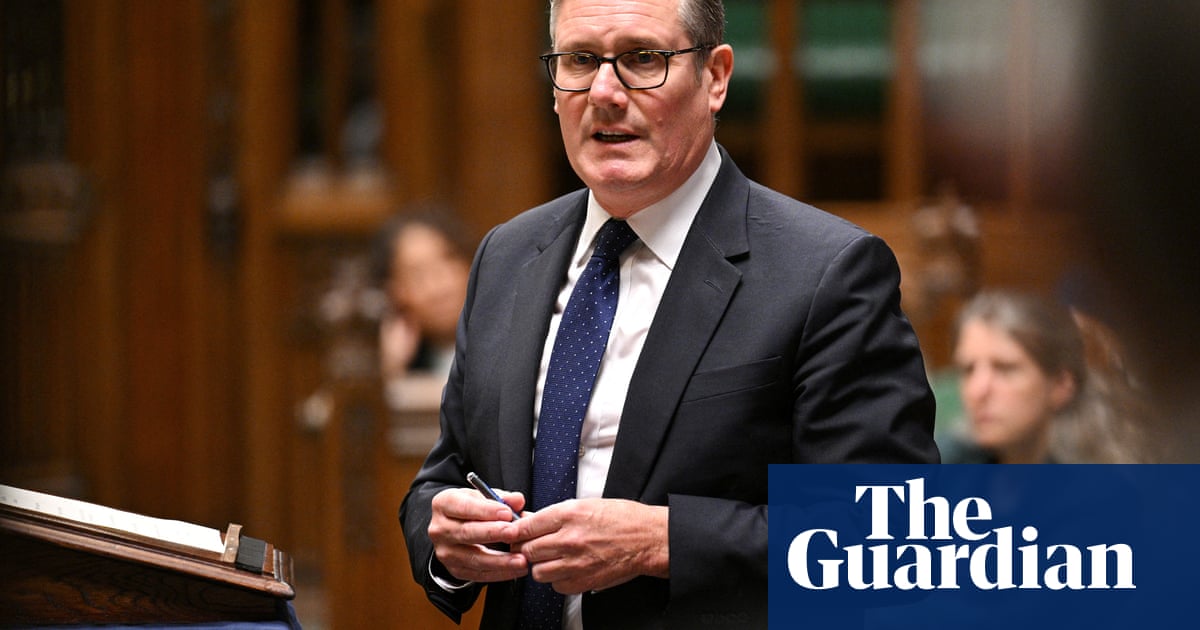It is less than a year sinceKeir Starmerled the Labour party to a historic landslide election victory.
And yet even with a Commons majority of 165, the prime minister looked to beheading for defeaton his government’s welfare bill which includes a major package of cuts to social security payments. That was until a last-minute compromise with his backbenchers, reached after fraught negotiations on Wednesday night and Thursday before the bill is voted on next Tuesday.
Liz Kendall, the work and pensions secretary in charge of the bill, will publish the full details of the changes on Monday. But already the outlines are becoming clear. So what does the U-turn mean for people on benefits and how will it be paid for?
At the heart of the government’s plans were changes to Pips – the regular payments designed to help disabled people have a good quality of life. The money is supposed to be used for practical items such as stairlifts or wheelchairs, but the amount being claimed has ballooned in recent years and is forecast tocontinue rising rapidly.
Ministers wanted to set a higher bar for eligibility to reduce the amount being paid out. Under the new system, claimants would have to score four points in one category to be eligible.
The categories include whether a person is able to move around unaided, whether they can wash themselves and whether they can cook their own meals. The tougher eligibility rules would have meant people who could not wash half of their body or cook their own meals might not have received the payment.
Many Labour MPs who opposed the changes wanted to scrap those new rules altogether. The compromise that has been reached is a promise that the new rules will apply only to new claimants and that the entire criteria system will be reviewed in conjunction with disabled people.
Meg Hillier, a senior Labour MP and one of the leading rebels, said on Friday: “Disabled people will be able to co-produce benefit changes with government, including how the four points on Pip changes will be applied.”
It remains unclear whether any changes recommended as part of that review, being led by the welfare minister Stephen Timms, will be made before the bill passes. One rebel said on Friday they wanted further assurances on what Timms would be able to look at and when he would make his recommendations.
One major complaint from Labour MPs was that the health element of universal credit was due to be frozen in cash terms over the parliament. This payment goes to people with severe conditions, such as a terminal illness or are recovering from cancer.
House of Commons research seen by the Guardian suggests that freezing that payment would have cost claimants about £250 a year by the end of the parliament. Ministers have now agreed to lift it in line with inflation.
Kendall had promised to spend £1bn on supporting people back into work, including a guarantee of training or employment for people aged 18 to 21, and a promise that people receiving health benefits would not be automatically re-assessed if they went back into work.
The work and pensions secretary said on Thursday she was going to increase the amount of money for those schemes and make £1bn available to spend this year, rather than later in the parliament.
Ruth Curtice, the head of the Resolution Foundation thinktank, said on Friday she believed the changes would cost £3bn. This includes the knock-on effects on other benefits such as carers’ allowance, which is paid to those who care for people receiving Pips.
This is in addition to the more than £1bn that the chancellor has promised to spend undoing large parts of her cuts to winter fuel payments. As a result, Labour MPs are unable to rule out tax rises in the autumn budget.
Before Wednesday night, more than 120 Labour MPs had signed a rebel amendment to Tuesday’s welfare bill which would have paused it indefinitely. With the Conservatives and Liberal Democrats also likely to vote against or abstain on the measures, that would have proved enough to defeat the government.
Hillier said on Friday the government concessions had won over the support of many of her colleagues. All the select committee chairs who signed the rebel amendment are now understood to be on board, as is Louise Haigh, the former transport secretary.
Many Labour MPs will probably vote against it anyway. “This smacks of a face-saving exercise more than it does doing right by my sick & disabled constituents,” theLabour MP Clive Lewis tweeted. “I’ll still be voting against.”
Labour party officials hope that the rebels will be limited largely to left-wing members of the Socialist Campaign Group, who do not have the numbers to defeat the government on their own.
